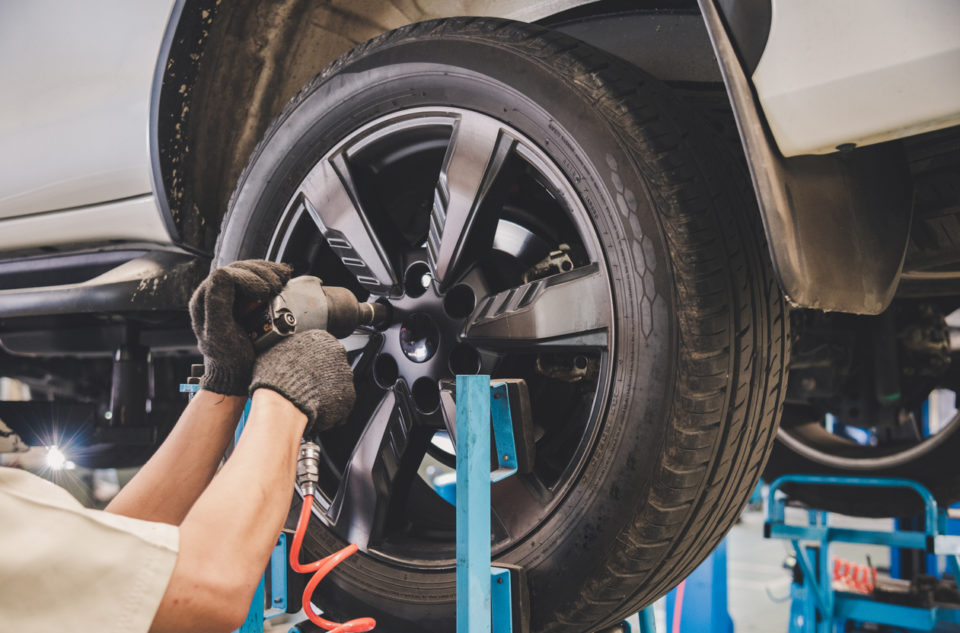Tires are an important accessory for your car, so it’s important to be knowledgeable about what tires your car has when to look for signs of wear, and what sizes, brands, and tire types you need. You don’t want tire buying to be a chore, so you need a guide to show you important facts about tires to make the right decision at the price that best fits you. Whether you are replacing or upgrading your tires, we have everything you need to know when buying tires.
Before You Buy
Before you buy your new tires, a few questions need to be answered. Make sure to research what type of tires your car needs, how many miles the tires will last, what your budget is, and if you need a replacement set or a full upgrade. If you don’t have any tires in mind yet, we have a list of top tires for you to check out.
All-Season Tires
Most vehicles today are fully equipped with all-season tires. These tires are designed to be all-around acceptable for multiple types of weather conditions so that you’re covered. These tires typically have a good wet-weather grip, quiet running, and acceptable capabilities in the snow. Some car owners who have severe winter weather conditions have an additional pair of snow or winter tires that have better traction for snow and ice.
There are two sub-categories of all-season tires. High-performance all-season tires give the driver sharper handling than standard tires. They usually grip the road better and feel sportier. The second sub-category is grand touring all-season tires. These tires typically have a less attractive look, but they ride better overall.
You might also like: Hacks To Clean Your Car Like A Pro
Winter Tires
Some people call winter tires snow tires, but either way, they are meant for the cold, snowy months of the year. Their job is to provide the vehicle with maximum traction in snow and icy conditions. There is no other tire that will provide this amount of traction. These tires don’t handle as well as all-season tires or wear as well. Once the winter months are over, it is recommended that you change to all-season or summer tires to spare the wear of the tread.

